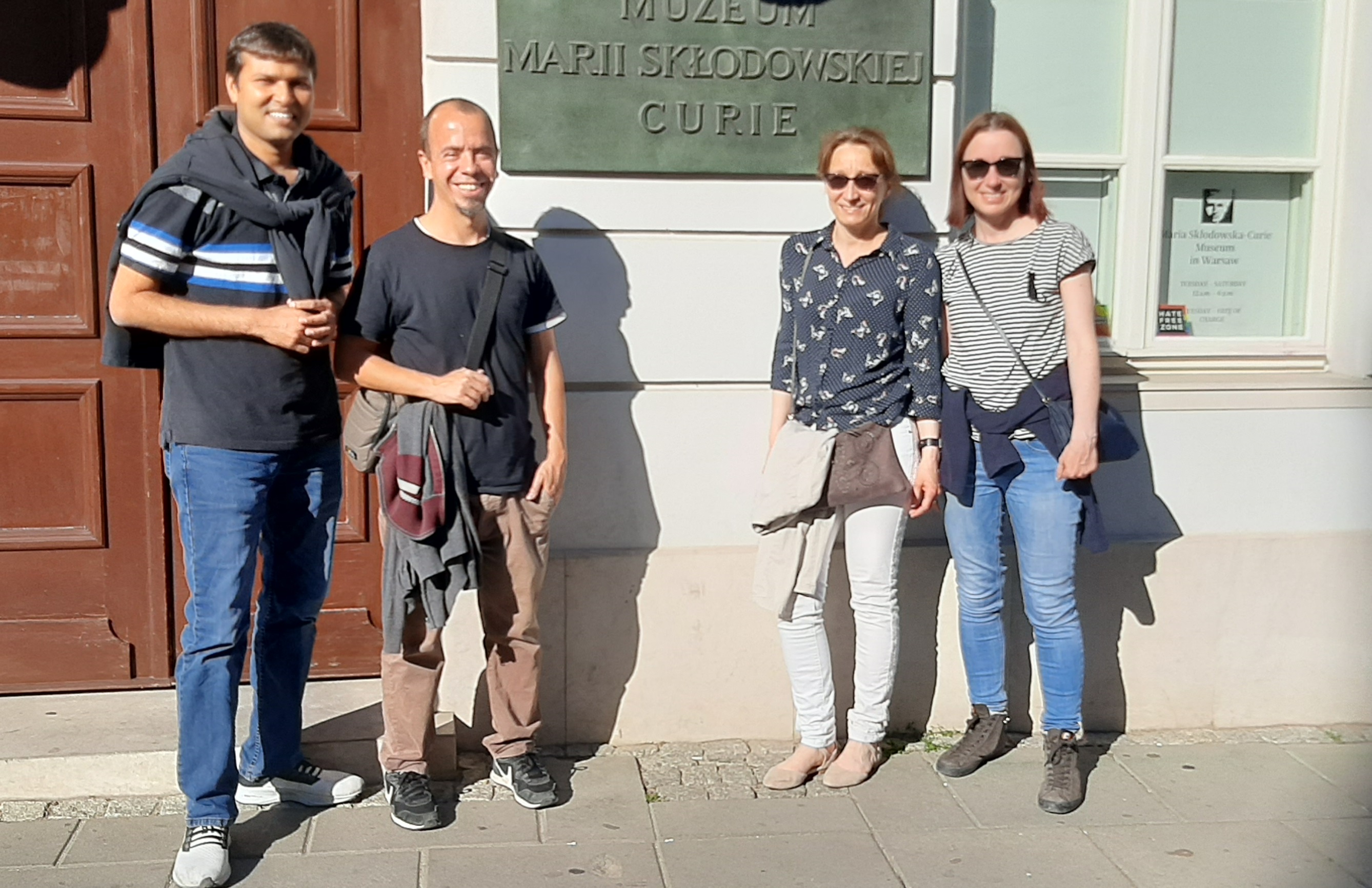Project "DIAGONAL- Ductility and Fracture Toughness analysis of functionally graded materials".

In this project, we aim to build an intercontinental and inter-multidisciplinary research network addressed to undertake one of the important challenges of Continuum Mechanics, Material Science, Aerospace Engineering and Civil Engineering: analysis, optimization and design of new functionally graded materials with unprecedented combinations of mechanical properties and functionalities, such as stiffness, strength, ductility, toughness, and formability, with minimal weight and cost. The rational solution to this problem is to adapt the local properties of different materials to fit specific requirements, by locating optimized compositions and architectures in appropriate regions, and generating multiple advantages within a single material to create improved global properties.
Overall research objective of DIAGONAL is identification and modelling of the mechanical behavior and fracture mechanics of engineering FGMs. Within this overall objective, we have identified 5 specific canonical problems (that shall be understood as interrelated parts of a whole defined by the overall objective) in which functionally graded properties play a key role in the mechanical response of materials prepared by additive manufacturing, namely:
1. Tailoring macroscopic mechanical properties of multi-material FGMs to delay instability-driven ductile failure
2. Virtual design of gradient microstructures of FGMs to refrain void-growth-driven ductile failure
3. Engineering the crack path in FGMs to increase the apparent fracture toughness
4. Exploiting FGM coatings to avoid contact-induced fracture in tribological applications
5. Developing numerical methods for optimization of damage-tolerant design of FGMs.
The network is an international consortium composed by 10 research organizations, including
- 4 European beneficiaries (University Carlos III of Madrid, Spain – Project Leader; University of Seville, Spain; Institute of Fundamental Technological Research (IPPT PAN), Poland, IMT School for Advanced Studies Lucca, Italy.
and 6 associated partners:
- 4 American (University of Florida, Northwestern University, Texas A&M University, University of Minnesota Twin Cities)
- 1 Australian (Monash University, Australia)
- 1 Brazilian (Universidade Federal de Santa Maria).
In this respect IPPT PAN will mainly strengthen its collaboration with Texas A&M. Institute premises are also foreseen as a location for project workshops and other meetings. As concerns scientific activities IPPT is a leader of one of two research Workpackages, which is devoted to analysis of the ductile behavior of functionally graded metals. In particular, IPPT will work on virtual design of gradient microstructures of FGMs, with use of the developed mathematical models, numerical analyses and basing on the results of experimental identification, to refrain void-growth-driven ductile failure. Representative of IPPT is also a member of Supervisory Board of the project.
Members of the network, which have renowned research groups in the project scope, will exchange their skills and knowledge to better understand and optimize the ductility and toughness behavior of brittle and ductile functionally graded materials. Breakthroughs in this field will allow functionally graded materials fabricated by additive manufacturing to replace traditional composites with sharp transition between dissimilar components commonly used in critical applications in construction of civil infrastructures and in aerospace, security and transportation industries, all sectors of crucial importance for the European economy and society, as stated Programme of Horizon Europe. The Staff members who participate in the project will be exposed to new research environments and develop new skills, thus contributing to their increased employability and supporting top-class research in Europe. The 10 organizations will strengthen their knowledge base and develop lasting collaborations.
The project's coordinator at IPPT PAN is prof. Katarzyna Kowalczyk-Gajewska from Department of Mechanics of Materials.
 |
In the photo, from the left: Dr Ankit Srivastava (Texas A&M), Prof. Jose A. Rodriguez-Martinez (Uniwersytet Carlosa III, Madryt), Prof. Katarzyna Kowalczyk-Gajewska (Project Coordinator at IPPT PAN), Prof. Guadalupe Vadillo (Project Leader, Uniwersytet Carlosa III) |


















